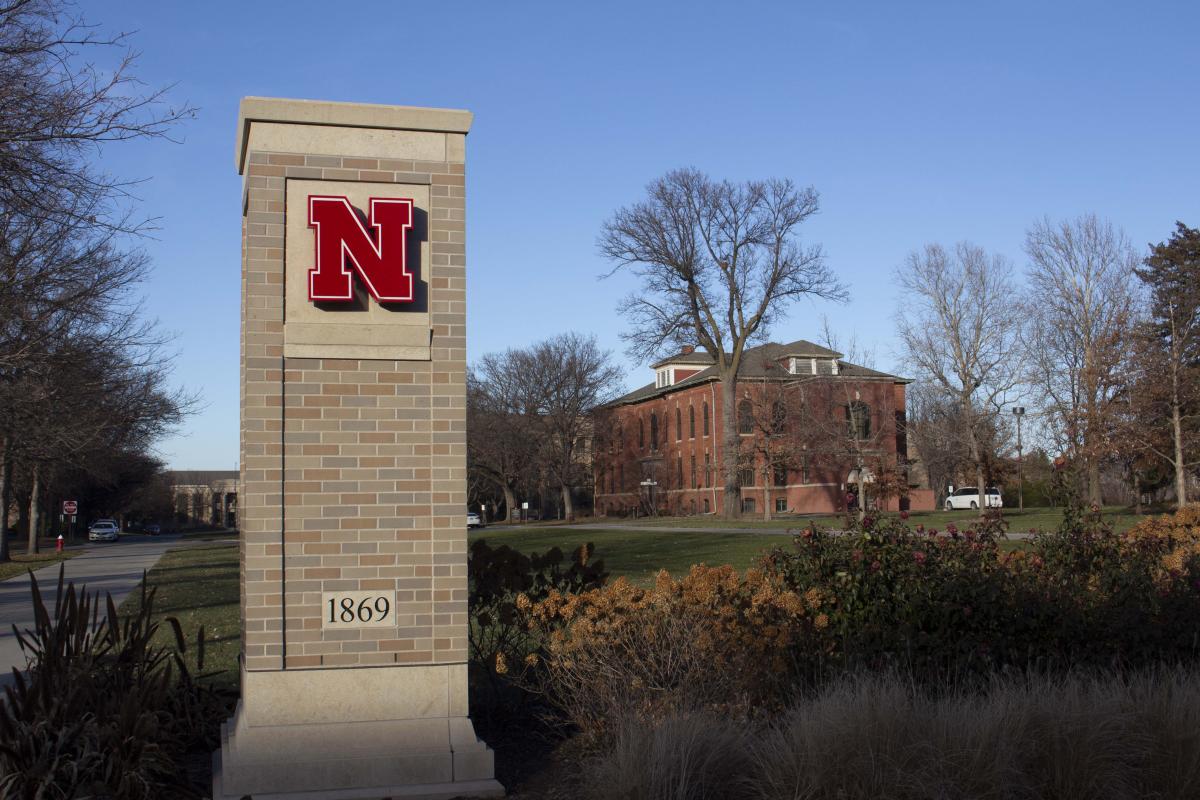
Managing Stress in Turbulent Environments
IANR’s Commitment to Stress Biology
Managing stress in both plants and animals is a necessity to produce the food, feed, fiber, and fuel needed to sustain a growing population. The Institute of Agriculture and Natural Resources (IANR) is committed to finding solutions for Nebraska’s agricultural producers and ranchers as demonstrated through its continual work in the area of stress biology.
Stress biology is “the impact of the environment, which could be physical, chemical, or biological interactions, on a living organism, and the response of that organism to the stimulus,” as defined by Mike Boehm, University of Nebraska Vice President for Agriculture and Natural Resources and Harlan Vice Chancellor of IANR at the University of Nebraska–Lincoln.
Simply put, stress biology is the study of how people, livestock, and crops interact with, and rebound from, the stressors of their environment.
The seemingly insurmountable challenges of the future – climate change, extreme drought, flooding, heat stress, and an increasing list of internal and external threats to both the livestock and crop sectors – are the driving forces behind IANR’s research and innovation in this space.
For those in production agriculture, Boehm said, stressors of both crops and livestock can impact production decisions, total output, and ultimately, the bottom lines of corporations, cooperatives, and the family farms and ranches that keep rural Nebraska strong.
IANR faculty and staff have committed to reducing these impacts on Nebraska farmers and ranchers. This edition of SDN highlights some of that work.
A Resounding Impact
IANR’s current research in the stress biology arena will have long-term ripple effects on production decisions made by Nebraska farmers and ranchers, Boehm said. With increasing challenges and more dramatic stressors on both livestock and crops, understanding how organisms react, respond, and rebound from stressors is vitally important.
IANR has committed to research and innovation in the area of stress biology by identifying it as a community focus area and appointing two IANR faculty members as community leaders to direct the charge, Clint Krehbiel and Loren Giesler.
Clint Krehbiel, professor and head of the Department of Animal Science, said managing stress in livestock, particularly beef cattle, is a nonnegotiable focus area for the future.
“Heat stress creates a metabolic response that is hard for cattle to compensate for,” Krehbiel said. “Mitigating the impacts of both heat stress and bovine respiratory disease will be critical as we look to the future.”
Loren Geisler, professor and head of the Department of Plant Pathology, sheds light on how a greater understanding of crop stressors will push the state’s ag economy forward.
“Stress biology research conducted at the university is going to impact our farmers by providing them with a more sustainable and profitable production system,” Geisler said.
Strategic Discussions for Nebraska 2022 Highlights
The 2022 edition of SDN highlights the collaborative focus of IANR and the interdisciplinary hubs, teams, and initiatives working on projects ranging from drought and climate, and livestock systems to crisis management, to name a few.
For example, the National Drought Mitigation Center’s (NDMC) mission is to not only mitigate the impacts of drought, but also to reduce the economic impact drought has on Nebraskans and the world. Simply put, the impact of drought spans beyond plant and animal needs. People, energy, and resources are all touched by periods of low moisture, and NDMC creates drought plans for those dealing with such stress.
Second, faculty and staff involved in the Soil Health Initiative research soil health and the impacts on crop production, water management, and human and wildlife health. Healthy soils provide the foundation for reliable and sustainable food sources, even in the face of extreme weather events like flooding and drought. The important work done through Nebraska Extension and faculty research in soil health helps to mitigate risk to keep ecosystems productive.
Third, with cutting-edge technology and research, the Nebraska Integrated Beef Systems (NIBS) Hub helps beef producers adapt to industry stressors. Through a multifaceted, collaborative effort, the NIBS Hub addresses narrow profit margins to help producers pass their livelihoods on to the next generation.
Finally, Nebraska One Health connects the relationships between animal, plant, and human health through Citizen Science Projects and the Community Scientists of Nebraska Network. This multidisciplinary approach acknowledges that there is no “one piece,” and that all living things are part of an interconnected system.
Together, these stories highlight a glimpse of work being conducted within IANR.
“Advancing production agriculture in a way that also takes care of our water and our land cannot happen without bringing together leading experts to share their expertise about stress biology,” Boehm said. “It is an honor to channel these efforts to serve the people and industries of Nebraska.”
For more information on IANR, visit ianr.unl.edu.
Key Takeaways:
- Stress biology, the focus of this SDN edition, is the study of how people, livestock, and crops interact with, and rebound from, the stressors of their environment.
- The seemingly insurmountable challenges of the future – climate change, extreme drought, flooding, heat stress, and an increasing list of internal and external threats to both the livestock and crop sectors – are the driving forces behind IANR’s research and innovation in this space.
- IANR's work in stress biology will have a resounding impact for Nebraska's producers, increasing the profitability of farms and ranches and improving the vitality of rural communities.
- This year's edition of SDN features a broad array of research projects that impact all facets of Nebraska agriculture, from drought, to soil, to beef.
- For more information on IANR, visit ianr.unl.edu.
